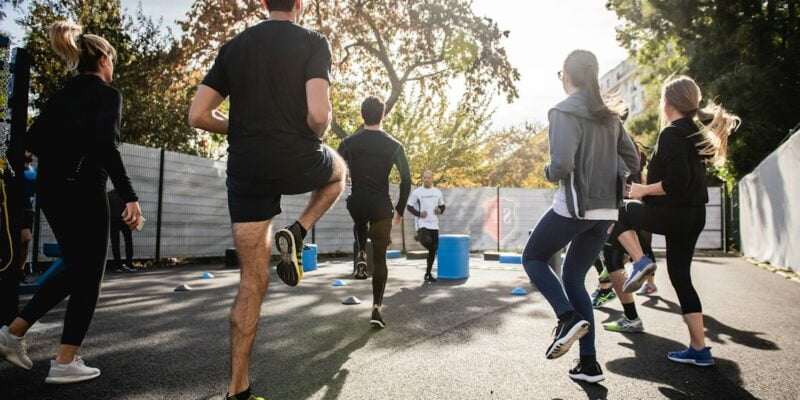
Fueling Your Performance: The Importance of Physical Health for Athletes
Physical health plays a crucial role in athletic performance. Athletes need to prioritize their physical health in order to achieve success in their sport. This includes maintaining a healthy diet, staying hydrated, getting enough sleep, incorporating strength training and cardiovascular fitness into their training regimen, focusing on flexibility and mobility, and preventing and rehabilitating injuries. By prioritizing their physical health, athletes can optimize their performance and reach their full potential.
Key Takeaways
- Physical health plays a crucial role in athletic performance.
- A healthy diet can improve an athlete’s performance and recovery.
- Proper hydration is essential for optimal athletic performance.
- Adequate sleep is necessary for athletic recovery and performance.
- Strength training, cardiovascular fitness, flexibility, and injury prevention are all important components of physical health for athletes.
The Benefits of a Healthy Diet for Athletes
A healthy diet is essential for athletes as it provides them with the necessary nutrients to fuel their bodies. Consuming nutrient-dense foods can improve an athlete’s energy levels, endurance, and recovery time. Carbohydrates are particularly important for athletes as they provide the body with energy. Whole grains, fruits, and vegetables are excellent sources of carbohydrates that can sustain an athlete’s energy levels throughout their training sessions or competitions.
Protein is another crucial component of an athlete’s diet as it helps with muscle repair and growth. Lean sources of protein such as chicken, fish, beans, and tofu should be included in an athlete’s meals. Healthy fats are also important for athletes as they provide long-lasting energy and aid in the absorption of fat-soluble vitamins. Sources of healthy fats include avocados, nuts, seeds, and olive oil.
Hydration and Its Impact on Athletic Performance
Proper hydration is essential for athletes to maintain their performance levels. Dehydration can lead to fatigue, cramping, and decreased performance. Athletes should aim to drink enough fluids before, during, and after their training sessions or competitions to stay hydrated.
Water is the best choice for hydration, but sports drinks can also be beneficial for athletes engaging in intense or prolonged exercise as they provide electrolytes that are lost through sweat. It is important for athletes to listen to their bodies and drink when they feel thirsty. They should also pay attention to the color of their urine, as dark urine can be a sign of dehydration.
The Importance of Sleep for Athletic Recovery
| Metrics | Description |
|---|---|
| Athletic Performance | Sleep helps improve reaction time, speed, accuracy, and overall performance. |
| Injury Prevention | Getting enough sleep can reduce the risk of injury by improving coordination and balance. |
| Muscle Recovery | Sleep is essential for muscle recovery and growth, as it allows the body to repair and rebuild muscle tissue. |
| Hormone Regulation | Sleep helps regulate hormones such as cortisol, which can affect muscle growth and recovery. |
| Immune System | Getting enough sleep can boost the immune system, which can help prevent illness and infection. |
Sleep is crucial for athletes to recover and repair their bodies. During sleep, the body releases growth hormone, which aids in muscle repair and growth. Lack of sleep can lead to decreased performance and increased risk of injury.
Athletes should prioritize getting enough sleep by establishing a consistent sleep schedule and creating a sleep-friendly environment. They should aim for 7-9 hours of quality sleep each night. This includes avoiding electronic devices before bed, keeping the bedroom cool and dark, and practicing relaxation techniques such as deep breathing or meditation to promote better sleep.
The Role of Strength Training in Athletic Performance
Strength training is an important component of athletic performance as it can improve an athlete’s power, speed, and endurance. By incorporating strength training into their training regimen, athletes can increase their muscle strength and power, which can translate into improved performance in their sport.
Strength training exercises should be specific to the demands of the sport and focus on compound movements that engage multiple muscle groups. Athletes should work with a qualified strength and conditioning coach to develop a strength training program that is tailored to their individual needs and goals.
Cardiovascular Fitness and Endurance for Athletes

Cardiovascular fitness is essential for athletes to maintain their performance levels. It refers to the ability of the heart, lungs, and blood vessels to deliver oxygen to the working muscles during exercise. Endurance training can improve an athlete’s ability to perform for extended periods without fatigue.
Endurance training can include activities such as running, cycling, swimming, or rowing. Athletes should incorporate both steady-state cardio exercises and interval training into their training regimen to improve their cardiovascular fitness and endurance.
Flexibility and Mobility: Key Components of Physical Health for Athletes
Flexibility and mobility are crucial for athletes to prevent injury and improve performance. Flexibility refers to the range of motion around a joint, while mobility refers to the ability to move a joint through its full range of motion.
Athletes should incorporate stretching and mobility exercises into their training regimen to improve their flexibility and mobility. This can include static stretching, dynamic stretching, foam rolling, and mobility drills. By improving their flexibility and mobility, athletes can enhance their performance and reduce the risk of injury.
Injury Prevention and Rehabilitation for Athletes
Injury prevention and rehabilitation are essential for athletes to maintain their physical health. Athletes should work with a healthcare professional such as a sports therapist or physiotherapist to develop a comprehensive injury prevention program.
This program may include exercises to strengthen weak muscles, improve balance and stability, and correct any imbalances or movement dysfunctions. In the event of an injury, athletes should seek immediate medical attention and follow a rehabilitation program to ensure proper healing and prevent further damage.
Mental Health and Its Impact on Physical Performance
Mental health plays a significant role in an athlete’s physical performance. Stress, anxiety, and other mental health issues can negatively impact an athlete’s focus, motivation, and overall performance.
Athletes should prioritize their mental health by practicing stress management techniques such as deep breathing, meditation, or visualization. They should also seek support from mental health professionals or sports psychologists if needed. By taking care of their mental health, athletes can optimize their physical performance and achieve success in their sport.
Prioritizing Physical Health for Athletic Success
In conclusion, physical health is a crucial component of athletic success. Athletes should prioritize their physical health by focusing on their diet, hydration, sleep, strength training, cardiovascular fitness, flexibility, injury prevention, and mental health. By taking care of their bodies and minds, athletes can optimize their performance and reach their full potential in their sport.
FAQs
What is physical health for athletes?
Physical health for athletes refers to the overall well-being of an athlete’s body, including their physical fitness, strength, endurance, flexibility, and agility.
Why is physical health important for athletes?
Physical health is important for athletes because it directly affects their performance. Athletes who are physically fit and healthy are more likely to perform better, have fewer injuries, and recover faster.
What are some ways athletes can maintain their physical health?
Athletes can maintain their physical health by following a balanced diet, staying hydrated, getting enough sleep, stretching regularly, and engaging in regular physical activity.
What are some common injuries that athletes may experience?
Common injuries that athletes may experience include sprains, strains, fractures, dislocations, and concussions.
How can athletes prevent injuries?
Athletes can prevent injuries by warming up properly before physical activity, wearing appropriate protective gear, using proper technique, and gradually increasing the intensity and duration of their workouts.
What should athletes do if they experience an injury?
If an athlete experiences an injury, they should stop the activity immediately and seek medical attention. They should also follow their doctor’s instructions for treatment and recovery.


















